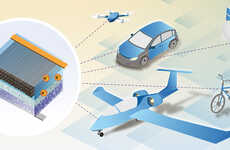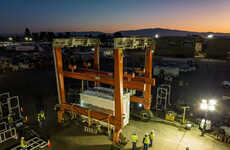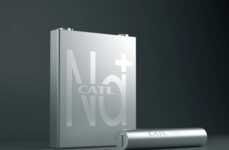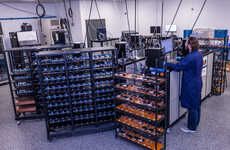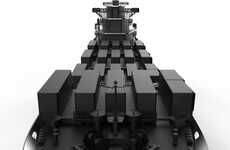The University of Bristol's Battery Can Convert Nuclear Waste
References: phys.org & digitaltrends
Nuclear energy is an almost entirely clean source of energy production, but the University of Bristol has developed a battery to efficiently make use of even the small amount of waste that nuclear reactors produce.
Though nuclear energy simply heats water into steam to power turbines, current nuclear fission reactors produce small amounts of radioactive waste in the form of carbon-14. This waste is small in terms of volume (especially when compared to the total energy output,) however it is also highly radioactive and thus very dangerous.
The University of Bristol's battery can make use of this radioactivity in order to generate energy. It uses a diamond -- which is a carbon structure -- to absorb the radioactivity from carbon-14 and turn it into energy.
Though nuclear energy simply heats water into steam to power turbines, current nuclear fission reactors produce small amounts of radioactive waste in the form of carbon-14. This waste is small in terms of volume (especially when compared to the total energy output,) however it is also highly radioactive and thus very dangerous.
The University of Bristol's battery can make use of this radioactivity in order to generate energy. It uses a diamond -- which is a carbon structure -- to absorb the radioactivity from carbon-14 and turn it into energy.
Trend Themes
1. Waste-converting Batteries - Exploring the development of batteries that can convert waste into energy.
2. Clean Energy Innovation - Focusing on the advancement of clean energy technologies to optimize sustainability.
3. Radiation Energy Conversion - Investigating new methods to harness and convert radiation into usable energy sources.
Industry Implications
1. Renewable Energy - Opportunity for renewable energy companies to develop waste-converting battery solutions for efficient energy production.
2. Nuclear Power - Potential for nuclear power industry to explore diamond battery technology for safe and efficient waste management.
3. Materials Science - Advancement in materials science field to develop innovative diamond-based battery technologies for various applications.
2.7
Score
Popularity
Activity
Freshness

